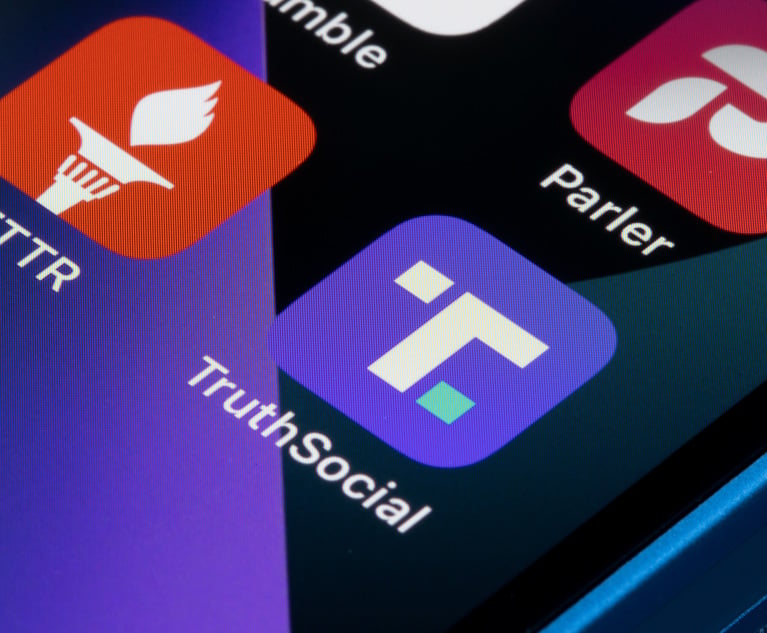 Robert Mueller. Photo: White House/Pete Souza
Robert Mueller. Photo: White House/Pete Souza Mueller Sentencing Memo Details Cohen's Aid in Russia Investigation
The Special Counsel's Office provided numerous examples of Cohen's assistance into Russian interference in the 2016 presidential election.
December 07, 2018 at 06:51 PM
4 minute read
Special Counsel Robert Mueller III's office revealed new details about their conversations with Michael Cohen, President Donald Trump's former attorney, ahead of his plea agreement in the office's sentencing memo filed in Manhattan federal court late Friday.
Cohen pleaded guilty to a single count of lying in written and verbal testimony to the U.S. Senate and House of Representatives committees investigating Russian influence operations during the 2016 presidential election.
Mueller's team acknowledge Cohen's lies were serious, but noted his efforts to assist the Special Counsel's investigation into those same influence operations.
The SCO confirmed some of what Cohen's attorney, Petrillo Klein & Boxer name attorney Guy Petrillo, outlined in his own sentencing submission last week—namely, that Cohen met seven times with the SCO ahead of pleading to lying to Congress late last month. The first meeting, according to Mueller's team, happened at Cohen's behest, in August 2018, during which Cohen repeated the falsehoods provided to Congress about the status of a project to build a Trump-branded tower in Moscow during the presidential campaign.
While Cohen lied about his own actions, Mueller said Cohen voluntarily provided “information relevant to other aspects of the SCOs ongoing investigation.” In his next meeting with prosecutors from Mueller's team the following month, Cohen came clean about the Moscow building project—after he had already pleaded guilty to unrelated criminal charges brought by the U.S. Attorney's Office for the Southern District of New York.
Cohen's attorney provided no comment for the record.
From that point on, Cohen was open with Mueller's team about “his broader efforts … to minimize his role, and what he knew about, contacts between [the Trump Organization] and Russian interests during the court of the campaign.”
For example, according to Mueller, Cohen “without prompting” admitted that his comments during a September 2015 radio segment suggesting Trump and Russian President Vladimir Putin meet during the United Nations General Assembly that year were not spontaneous, as he later claimed. In fact, Mueller says Cohen admitted, Trump and Cohen had conferred about contacting the Russian government “before reaching out to gauge Russia's interest in such a meeting”—one which ultimately did not take place.
Mueller's team then went on to detail Cohen's further assistance with the campaign.
Cohen provided information about his contacts with “Russian interests” during the campaign, as well as with “others in the course of making those contacts,” and “attempts by other Russian nationals to reach the campaign.”
For example, the previously detailed work Cohen did on the Moscow building project, which included a phone conversation with an aide to Putin's spokesman, wasn't the only time a Russian communicated with Cohen about the project. Cohen also spoke with an unnamed person in the Russian Federation who claimed to be a trusted person who offered the Trump campaign “'political synergy' and 'synergy on a government level,'” according to Mueller's office. The person “repeatedly” proposed a meeting between Trump and Putin, promising doing so would not only help politically but on the business front as well.
Cohen did not follow up on the invitation, according to Mueller's office.
Trump's former attorney also provided Mueller's office with “useful information” related to Cohen's “regular contact” with Trump Organization executives. This information, according to the SCO, was related to “certain discrete Russia-related matters core to” the office's investigation into Russian meddling in the 2016 U.S. election.
Cohen also provided information that suggested more recent matters concerning the Trump administration. Mueller's office was provided “relevant and useful information” about Cohen's contacts inside the White House.
Cohen also described to Mueller's team the circumstances of preparing and circulating his response to the congressional inquiries. In his own filing, Cohen acknowledges that his lies were meant to “support and advance” Trump's political messaging. Cohen acknowledged being in “close and regular contact” with White House staff at the time his written responses were being prepared, which sought to “stay in line” with the White House's messaging on the Moscow project and the broader investigation into Russian interference in 2016.
Rudy Giuliani, Trump's spokesman and attorney, did not immediately respond to a request for comment.
An attorney for the Trump Organization also did not immediately respond to a request for comment.
Related:
This content has been archived. It is available through our partners, LexisNexis® and Bloomberg Law.
To view this content, please continue to their sites.
Not a Lexis Subscriber?
Subscribe Now
Not a Bloomberg Law Subscriber?
Subscribe Now
NOT FOR REPRINT
© 2024 ALM Global, LLC, All Rights Reserved. Request academic re-use from www.copyright.com. All other uses, submit a request to [email protected]. For more information visit Asset & Logo Licensing.
You Might Like
View All
After 2024's Regulatory Tsunami, Financial Services Firms Hope Storm Clouds Break


Trump Media Accuses Purchaser Rep of Extortion, Harassment After Merger
4 minute read
Trending Stories
- 1Lawyer’s Resolutions: Focusing on 2025
- 2Houston Judge Exonerated on Appeal, Public Reprimand Vacated
- 3Bar Report - Dec. 30
- 4Employment Law Developments to Expect From the Second Trump Administration
- 5How I Made Law Firm Leadership: 'It’s Imperative That You Never Stop Learning,' Says Ian Ribald of Ballard Spahr
Who Got The Work
Michael G. Bongiorno, Andrew Scott Dulberg and Elizabeth E. Driscoll from Wilmer Cutler Pickering Hale and Dorr have stepped in to represent Symbotic Inc., an A.I.-enabled technology platform that focuses on increasing supply chain efficiency, and other defendants in a pending shareholder derivative lawsuit. The case, filed Oct. 2 in Massachusetts District Court by the Brown Law Firm on behalf of Stephen Austen, accuses certain officers and directors of misleading investors in regard to Symbotic's potential for margin growth by failing to disclose that the company was not equipped to timely deploy its systems or manage expenses through project delays. The case, assigned to U.S. District Judge Nathaniel M. Gorton, is 1:24-cv-12522, Austen v. Cohen et al.
Who Got The Work
Edmund Polubinski and Marie Killmond of Davis Polk & Wardwell have entered appearances for data platform software development company MongoDB and other defendants in a pending shareholder derivative lawsuit. The action, filed Oct. 7 in New York Southern District Court by the Brown Law Firm, accuses the company's directors and/or officers of falsely expressing confidence in the company’s restructuring of its sales incentive plan and downplaying the severity of decreases in its upfront commitments. The case is 1:24-cv-07594, Roy v. Ittycheria et al.
Who Got The Work
Amy O. Bruchs and Kurt F. Ellison of Michael Best & Friedrich have entered appearances for Epic Systems Corp. in a pending employment discrimination lawsuit. The suit was filed Sept. 7 in Wisconsin Western District Court by Levine Eisberner LLC and Siri & Glimstad on behalf of a project manager who claims that he was wrongfully terminated after applying for a religious exemption to the defendant's COVID-19 vaccine mandate. The case, assigned to U.S. Magistrate Judge Anita Marie Boor, is 3:24-cv-00630, Secker, Nathan v. Epic Systems Corporation.
Who Got The Work
David X. Sullivan, Thomas J. Finn and Gregory A. Hall from McCarter & English have entered appearances for Sunrun Installation Services in a pending civil rights lawsuit. The complaint was filed Sept. 4 in Connecticut District Court by attorney Robert M. Berke on behalf of former employee George Edward Steins, who was arrested and charged with employing an unregistered home improvement salesperson. The complaint alleges that had Sunrun informed the Connecticut Department of Consumer Protection that the plaintiff's employment had ended in 2017 and that he no longer held Sunrun's home improvement contractor license, he would not have been hit with charges, which were dismissed in May 2024. The case, assigned to U.S. District Judge Jeffrey A. Meyer, is 3:24-cv-01423, Steins v. Sunrun, Inc. et al.
Who Got The Work
Greenberg Traurig shareholder Joshua L. Raskin has entered an appearance for boohoo.com UK Ltd. in a pending patent infringement lawsuit. The suit, filed Sept. 3 in Texas Eastern District Court by Rozier Hardt McDonough on behalf of Alto Dynamics, asserts five patents related to an online shopping platform. The case, assigned to U.S. District Judge Rodney Gilstrap, is 2:24-cv-00719, Alto Dynamics, LLC v. boohoo.com UK Limited.
Featured Firms
Law Offices of Gary Martin Hays & Associates, P.C.
(470) 294-1674
Law Offices of Mark E. Salomone
(857) 444-6468
Smith & Hassler
(713) 739-1250






